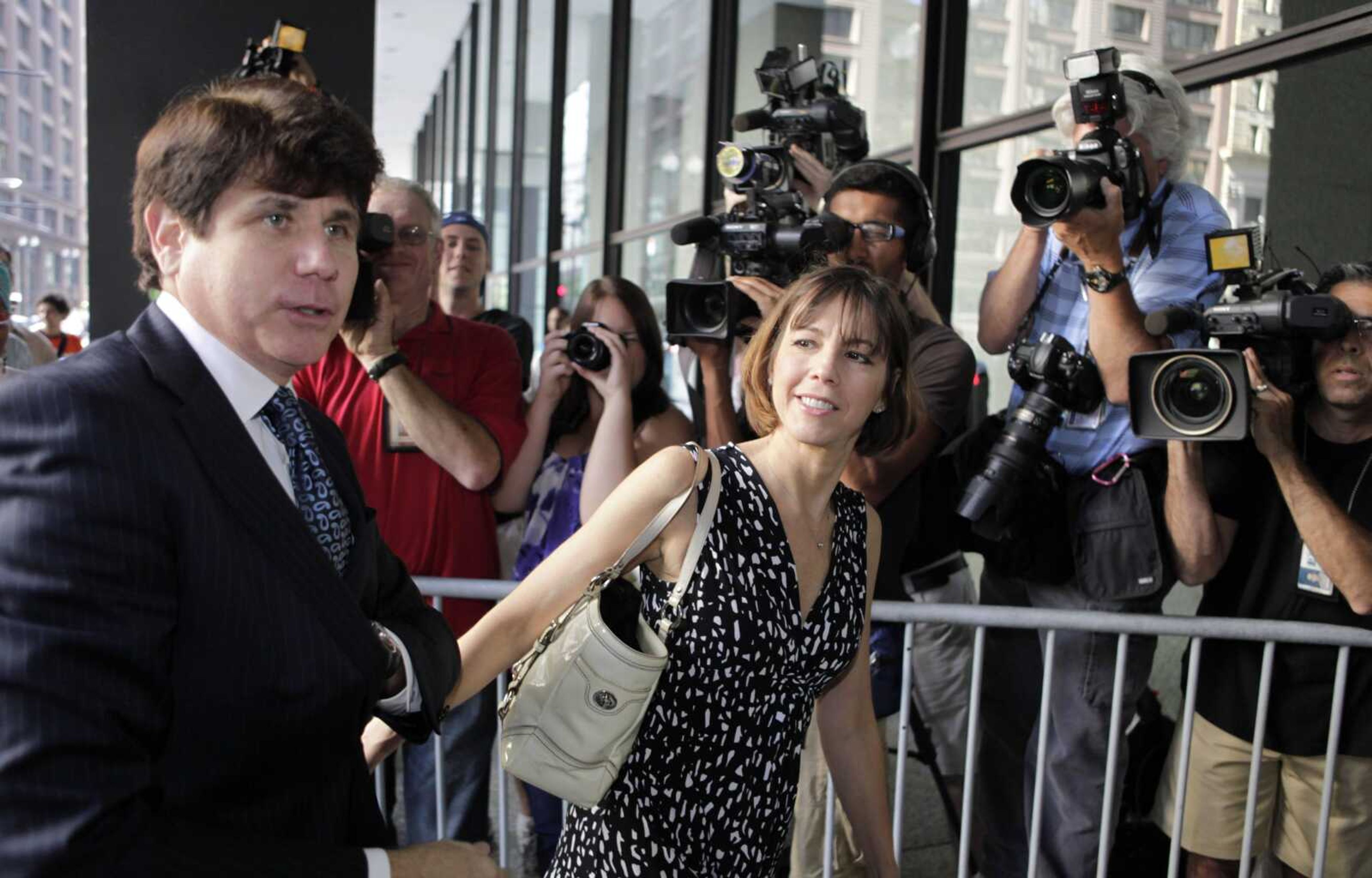Blagojevich decides not to testify
CHICAGO -- Rod Blagojevich's surprise decision not to testify after all at his corruption trial is a gamble that spared the ousted Illinois governor from a possible ordeal on the witness stand but could backfire with the jury. Blagojevich's defense team rested its case Wednesday without calling a single witness. ...
CHICAGO -- Rod Blagojevich's surprise decision not to testify after all at his corruption trial is a gamble that spared the ousted Illinois governor from a possible ordeal on the witness stand but could backfire with the jury.
Blagojevich's defense team rested its case Wednesday without calling a single witness. Trial lawyers said the move may have caught prosecutors off guard and could force them to adjust their strategy, which included cross-examining Blagojevich and potentially offering tough rebuttal witnesses.
"I think the government was outfoxed by him," said Leonard Cavise, a DePaul University law professor.
Blagojevich will not face embarrassing questions about evidence that he spent $200,000 on suits while going deep in debt, used profanities to describe some of the nation's top leaders and hid in the bathroom to avoid meetings. But jurors are unlikely to overlook the fact that defense attorneys promised for months that he would testify to tell his side.
"I think the cross-examination would have been devastating," said Ron Safer, former head of the criminal division of the U.S. attorney's office and now in private practice. "But I think the silence is also devastating."
Blagojevich, 53, has pleaded not guilty to scheming to sell or trade President Barack Obama's former Senate seat for a Cabinet post, an ambassadorship, a high-paying job outside government or a massive campaign contribution. He also pleaded not guilty to plotting to launch a racketeering operation in the governor's office.
His brother, Robert Blagojevich, a 54-year-old Nashville, Tenn., businessman, is also on trial and has pleaded not guilty to taking part in the alleged scheme.
Blagojevich stood before U.S. District Judge James B. Zagel and announced his decision.
"Is it your decision not to testify?" Zagel asked.
"It is my decision," Blagojevich responded, nodding slightly. He sat down smiling.
Blagojevich later told reporters he believed all along that he would testify and only reluctantly reconsidered on the advice of his lawyer.
Attorney Sam Adam's "most compelling argument, and I believe the one that swayed me, was that the government in their case proved my innocence. They proved I did nothing illegal, and there was nothing further for us to add," Blagojevich said.
The 74-year-old Adam, one of Chicago's most experienced defense attorneys, took charge of Blagojevich's case months ago and has long been influential with the former governor.
Adam's son, attorney Sam Adam Jr., said he disagreed with the decision to keep Blagojevich off the witness stand.
Experts contacted by The Associated Press on Wednesday were divided on the defense claim that the government had failed to make the case and thus no defense was needed.
Professor Ronald Allen of the Northwestern University law school said it was "a compelling case on a number of counts."
"A lot of it is circumstantial," Allen said, but he added that direct evidence of bribery and extortion is rare.
"People aren't stupid -- they don't always state exactly what they are trying to do" when they commit crimes, he said.
John Beal, a former Justice Department attorney now in criminal defense practice, said he had the impression that the defense caught the government by surprise.
He said the government's evidence seemed to lack some key ingredients.
"Neither Blagojevich nor his campaign fund received any money," Beal said.
He said money changing hands isn't necessarily required to find Blagojevich guilty on some of the charges but jurors may not be convinced of that. And the fact that Blagojevich's wife, Patti, was paid by Rezko may not be sufficient to persuade jurors that her husband was guilty, he said.
"They want to be convinced that you did something wrong," Beal said. "They're using heavy hitting charges that make the jury think he must be required to have done something wrong, and then it turns out he never received any money."
Attorneys said Wednesday that the ambiguity of the case was guaranteed to keep jurors deliberating for a long time, and there would be no snap verdict. Unlike civil cases where juries decide on the preponderance of the evidence, a conviction of Blagojevich requires jurors to find him guilty beyond a reasonable doubt.
"If this were a civil case, I would call it a slam dunk," says David Yellen, dean of the Loyola University law school. "They certainly came close to proving some criminal violations, but whether they got over the hump is open to question."
When court resumes Thursday, the judge planned to rule on a routine request to throw out some or all of the charges against Blagojevich and his brother. Such motions are common but are rarely granted.
Connect with the Southeast Missourian Newsroom:
For corrections to this story or other insights for the editor, click here. To submit a letter to the editor, click here. To learn about the Southeast Missourian’s AI Policy, click here.









